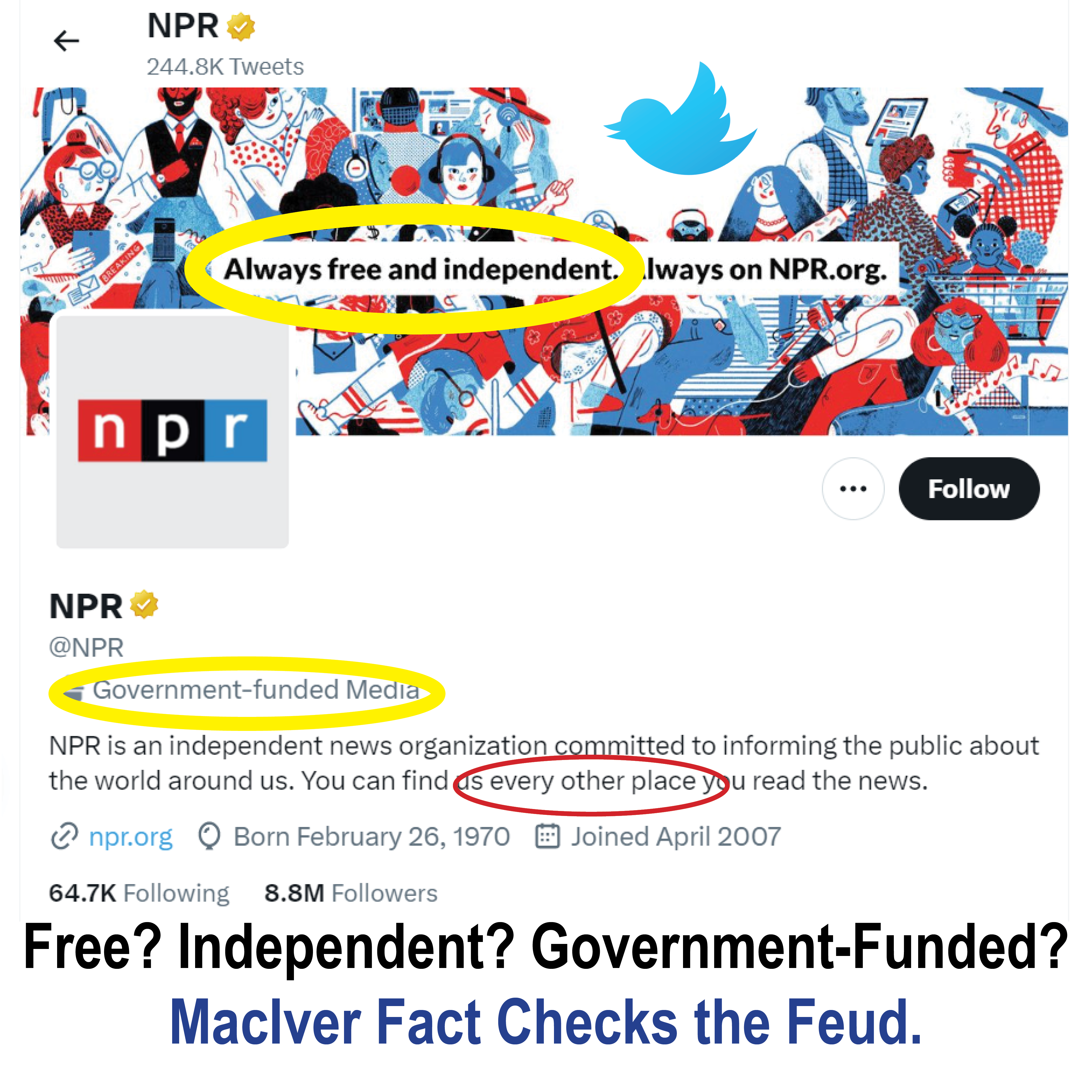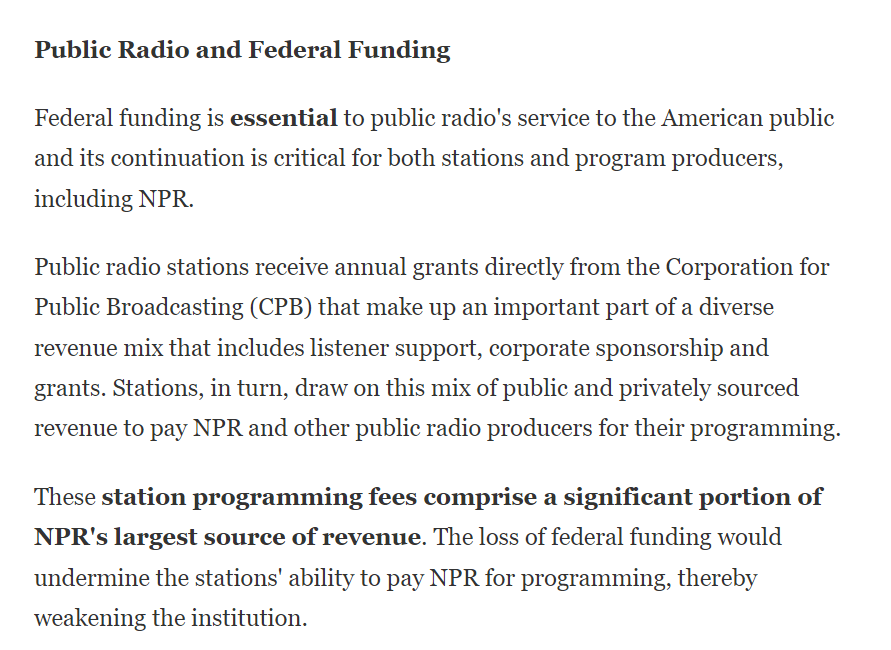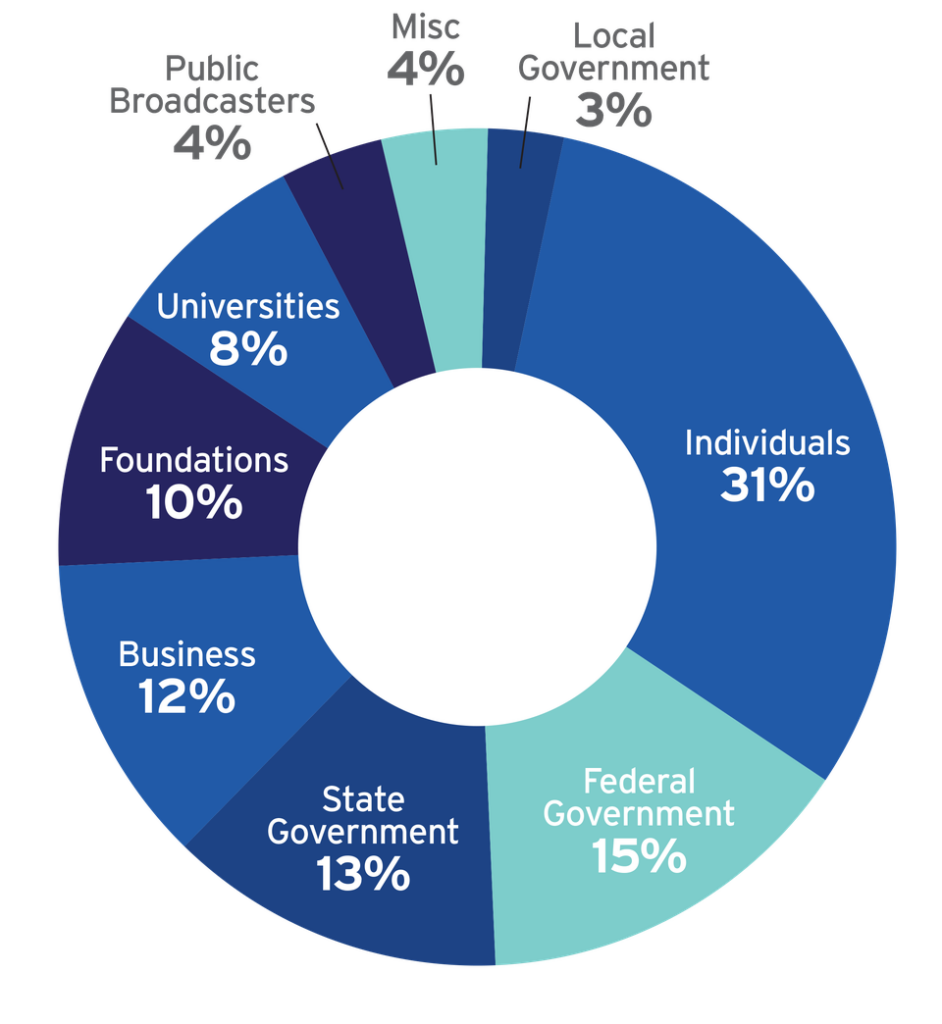
Is Public Broadcasting Government Funded?
The next several weeks will be filled with the Joint Finance Committee voting on the programs our tax dollars will finance. One of those votes will determine how much state government funding will go to public media.
…You know, National Public Radio (NPR) and the Public Broadcasting System (PBS). The public media giants that were so upset that they were called government-funded that they had to up and quit Twitter over it.
They say they’re not government funded; government ledgers seem to show they are government funded.
Sounds like a good time for a fact check.
Is Public Media Gaslighting the Public?
Last month, Twitter labeled publicly funded media accounts “state-affiliated media,” including NPR’s main account. NPR complained, and the label was changed to “government-funded media” which they found unacceptable as well, saying it’s inaccurate and misleading.
NPR’s CEO John Lansing said “The whole point isn’t whether or not we’re government funded. Even if we were government funded, which we’re not, the point is independence, because all journalism has revenue of some sort.”
NPR and PBS decided to take their marbles and go home, quitting Twitter over being labeled government-funded media. They huffily declared they would not put “their journalism” anyplace where their credibility and independence might be questioned.
NPR and PBS are explicitly saying that they are not government funded.
They also seem to be suggesting that taking government (tax) dollars renders a media outlet non-credible and non-independent. Or perhaps something a bit more nuanced, suggesting that if people know a media outlet takes government money it means those people will view the outlet as non-credible or non-independent. In either case, public media is saying that Twitter labeling them as funded by the government, with taxpayer money, is an intolerable attack.
So, let’s introduce a little fresh air to the situation.
Are NPR and PBS government funded?
All things considered, indisputably, yes. NPR says so on their website (emphasis theirs):
Simply Folk, Not Simply Superior
So, gaslighting aside public broadcasting is taxpayer funded.
It’s also listener-funded, and (gasp) corporate-funded, millionaire-funded and even billionaire Bill Gates- and George Soros-funded. None of those revenue streams suggests public media is any better than any other media outlet in terms of journalistic integrity. After all, as Lansing said, all journalism has some revenue source.
Hoity toity public broadcasting lands squarely in the midst of journalism’s hoi polloi based on their involvement in scandals featuring sexual harassment, antisemitism, anti-Christianity, masking falsehoods, sexual assault, tea-party trashing, Democrat donor list-sharing, and conflicts of interest.
Yes, public media has willing donors. They just don’t want to acknowledge they also have unwilling donors – federal, state and local taxpayers.
The Public Media Marketplace: Newsmakers Powered by Tax Dollars
The Corporation for Public Broadcasting (CPB) takes federal tax dollars, north of $500 million a year, and sends a bit over two-thirds of them out to more than 1,500 local public radio and television stations. CPB gives about a quarter of their funds to entities that produce programming…for local stations to buy…using the CPB tax dollars they were awarded. The only part of the equation CPB doesn’t have their hand in is distributing or broadcasting the programming.
CPB, BTW, gives a shout-out to their funding source in their logo.
A few of the many programming producers CPB funds:
- Public Broadcasting System – PBS
- National Public Media – NPM
- American Public Television – APT
- Independent Television Service – ITVS
- Public Radio in Mid America – PRIMA
- Public Radio International – PRI
- National Educational Telecommunications Association – NETA
- American Public Media – APM
- National Public Radio – NPR
- Public Radio Exchange – PRX
It’s worth mentioning that the funds flowing from CPB are not the only tax dollars NPR and her sister public programming producers receive. The National Endowment for the Arts, the U.S. Department of Education, and the U.S. Department of Commerce chip in too. And doubtless others.
PBS has the chart below on their website showing the breakdown of funding for public television – it shows 31% combined state, federal and local funding. Plus another 8% from universities (some may be private, most is public) and 4% from public broadcasters who are likely using at least some of their CPB funding to purchase programming. That means more than a third of their funding, potentially more than 40%, comes from government sources. From taxpayers. To the best of our knowledge, that’s the definition of government-funded.
And of course, public broadcasting was not left out in the federal pandemic spending frenzy – an additional $250 million in CARES and ARPA funds went to public radio and television.
Government-Funded Public Media in Central Time
In Wisconsin, we have 33 public radio stations and 8 public television stations that receive tax dollars from CPB.
According to the CPB website, they sent $11.7 million federal tax dollars to Wisconsin in fiscal year 2021. FY 2020 we received $8.8 million and FY 2019 $7.45 million.
Federal funding also comes from CPB to the Educational Communications Board (ECB), which is a state agency with 52 employees and a $42 million budget, that partners with UW-Madison to operate WPR and WPTV.
ECB got about $5.3 million from CPB last biennium.
That’s just the federal money.
As It Happens, State Government Kicks In Money Too
ECB employees are state employees, and WPR and WPTV employees are University employees. State benefits, state retirement system. One of those employees is, and we swear we are not making this up, a Chief Curiosity Officer.
State taxpayers gave $12 million GPR to ECB in the last biennium.
In 2022, ECB gave about $2.7 million to PBS and NPR.
In 2022, the University of Wisconsin gave over $1 million to NPR, NPM, APM, APT, PRX, PRIMA, PRI, WPR, Wisconsin Public Broadcasting, Wisconsin Public Radio Association, New York Public Radio (which 6 assault/harassment charges later, still has a page featuring Jian-#dontbelieveher-Ghomeshi), and Minnesota Public Radio.
The Reveal: A Big Lie
NPR says on their website that government funding is essential. PBS shows on their website they heavily rely on tax dollars.
Then Twitter said they were government funded.
And suddenly public media reacted by explicitly denying facts long-published in their own financial reports and on their websites, claiming not to be government funded. And claiming Twitter was maligning their integrity…through accuracy.
Twitter had it right. PBS and NPR are government-funded and state-sponsored.
A Way With Words
Public media revels in the rarefied place they’ve created in the world of journalism. They’ve made a business model of gaslighting. They have cast themselves as independent thinkers creating completely unbiased content that they generously provide completely free to all…truth-warriors who barely subsist on snagging a couple bucks (less than a cup of coffee!) from folks who value “credible” media.
They’ve trained us all to code switch and accept that words they use mean something completely different than those same words mean when we use them.
Public media is not free. They’re government-funded, state-affiliated big business, propped up by taxpayers. And unlike WisPolitics, the Cap Times or the Journal Sentinel, taxpayers who don’t want or value their content have to pay for it anyway.
After all the bruhaha, last week Twitter removed the ‘government-funded’ tag from all government-funded media, internationally, but NPR and PBS still have hurt feelings.
And millions and millions of government funding.
The Takeaway
To paraphrase NPR CEO Lansing, even if they were unbiased, which they’re not, all journalism has revenue of some sort, but only public media gets tax dollars.
Should taxpayers be financing journalism that provides neither higher quality nor less bias than any other media outlet? As journalism reworks itself (not always for the better) they’ve cut staff, sacrificed evenhandedness for clicks, and charge willing donors for access to their product. Why should public media be sacrosanct?
There have been efforts at the federal level to cut funding, all have failed.
In Wisconsin, the proposed cuts in the 2015-17 budget were dialed back, after being characterized as damaging to public education and a threat to public safety (because of the role public stations have in emergency alerts.) Has public education gotten better? Is there really no way to get emergency alerts without also spending millions of tax dollars on left-leaning programming?
If public media believes being “government-funded” undermines the integrity of the recipient, perhaps it’s prime time to relieve them of that burden and free them up to be credible. ECB’s budget is up for a vote in JFC on Thursday.

